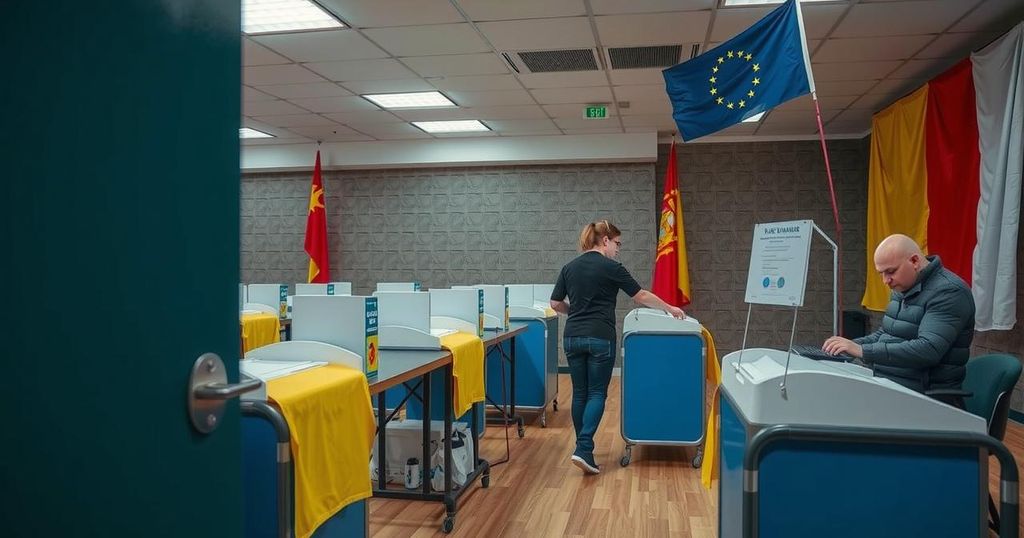Moldova’s Pivotal Presidential Election and EU Membership Referendum

Moldova recently conducted a presidential election and a referendum on EU membership. President Maia Sandu is seeking re-election but may face a runoff as polls show she might not secure a majority. The referendum is seeing substantial support among voters, though allegations of Russian interference have emerged, complicating the electoral process.
Moldova held a crucial election recently, allowing citizens to vote for both a presidential candidate and to decide on a referendum regarding European Union membership. Incumbent President Maia Sandu, who is campaigning for a second term, faces a challenging electoral landscape and is anticipated to require a runoff due to not likely achieving the 50% majority necessary for an outright victory. Alongside the presidential race, voters are considering a constitutional amendment that would enshrine the goal of EU membership, reflecting Moldova’s strategic pivot away from Russian influence following the Ukrainian crisis in 2022. This election features President Sandu against ten other candidates, including Alexandr Stoianoglo, a former prosecutor with support from pro-Russian parties, and Renato Usatii, a local political figure. Current polling positions Sandu as the leading candidate, though with only approximately 36% support. Should no candidate secure a majority by the end of the polls, a second round of voting is set for November 3. The referendum is gaining traction, with surveys indicating that around 55% of the electorate favors joining the EU, contingent on a minimum of 33% participation to validate the vote. Opponents, particularly from pro-Russian factions, are calling for a boycott or a ‘no’ vote. The political environment is further complicated by allegations of Russian interference. Moldovan authorities revealed a significant vote-buying scheme reportedly funded by Russia, targeting voters to support a specific candidate and to discourage EU membership. Ilan Shor, a politically charged figure accused of orchestrating these efforts from abroad, has denied any wrongdoing, placing the integrity of the election under scrutiny.
Moldova, a former Soviet republic with a population of approximately 2.5 million, has been undergoing a significant political transformation as it seeks closer ties with the European Union, particularly in light of regional tensions stemming from Russia’s actions in Ukraine. This election is central to Moldova’s aspirations for EU integration, and the accompanying referendum represents a pivotal moment in determining the country’s future direction. The political scene is highly polarized, with a mix of pro-European and pro-Russian candidates creating a contentious electoral atmosphere, impacting voter behavior and political allegiance.
The Moldovan election signifies a critical juncture for the nation as it navigates its aspirations for EU integration while contending with internal divisions and external pressures. With an incumbent president favored yet potentially facing a runoff, the implications of the electoral outcomes will be vital for both Moldova’s socio-political landscape and its international relations moving forward. The allegations of Russian interference underscore ongoing geopolitical tensions that could influence the election results and future policy decisions.
Original Source: www.dw.com








